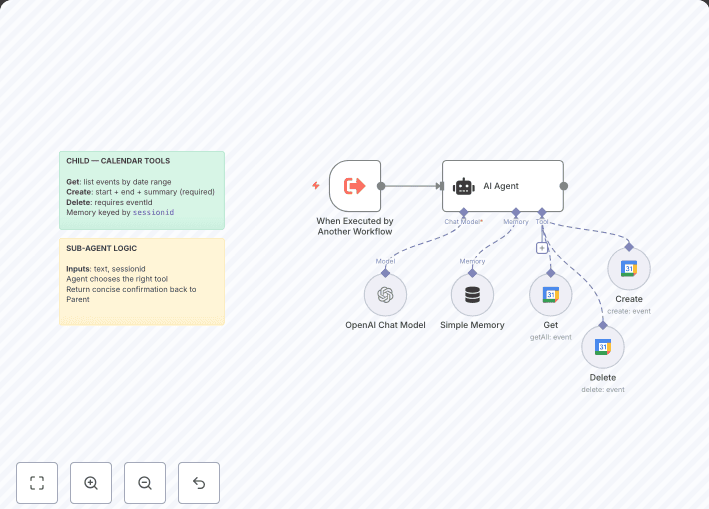Autonomous YouTube - Blog Builder / SEO Autopublisher (Sheets, ChatGPT, Apify, Pexels, WordPress) – Multilanguage
100% autonomous workflow that transforms YouTube videos into unique, high-quality, SEO-optimized blog articles and automatically publishes them to WordPress. No human intervention required: it uses YouTube as the main source for fresh, original content ideas, manages a keyword bank in Google Sheets , finds relevant videos via Apify , transcribes , writes , formats , selects a featured image via Pexels, generates SEO metadata , and publishes.
When all keywords are used, it will automatically generate new ones (avoiding duplicates) to keep producing content without interruptions.
Estimated cost per post (including ChatGPT + Apify (free 5$ new user)) → $0.01 – $0.03 depending on video length.
Includes:
- Access to APIs with 7-day free trials (Apify, Pexels, etc.).
- Step-by-step documentation to get each API key.
- Basic setup support to get you started.
Who it’s for
- Agencies and creators looking to scale blogging from video content.
- SEO teams needing automation with quality control.
- Technical bloggers who want hands-off publishing with tracking.
SEO
- SEO teams needing automation with quality control (modifiable from the options node like including h1, hierarchy among other SEO options).
- The title and description of the page (SEO) is based on the language in which the blog was created
- Allows you to add keywords
How it works (phase summary)
Part 1 – Keyword initialization
- Manual or scheduled trigger.
- Checks if the Google Sheet is empty; if so, generates 10 keywords based on a seed idea and saves them.
Part 2 – Keyword management & blog settings
- Includes an “options” node to configure global blog language and formatting rules (H1, headings, bold, intro, conclusion, etc.).
- Selects a keyword with
false status (unused), marks it true with a usage date , and if none are left, generates new ones while avoiding duplicates.
Part 3 – Video search & duplicate filtering
- Searches YouTube via Apify using the keyword, retrieves ~30 results, excludes Shorts , and selects 2 videos based on title/description/hashtags.
- Checks for duplicates; if found, retries up to 5 times with variations.
- If still duplicated, discards the keyword and selects another.
Error Handling & Continuity
Includes fallbacks and failure alerts in every critical node to ensure the workflow keeps running even if a step fails.
Part 4 – Article creation
- Transcribes the video (cost included in $0.01–$0.03).
- ChatGPT writes a formal blog post in the language set in the “options” node.
- A second ChatGPT step applies the formatting rules (structure, H1/H2…, intro/conclusion).
- Ensures SEO compliance.
- Converts Markdown → HTML and publishes to WordPress (more info results screenshots).
Part 5 – Image & final publishing
- Searches Pexels API for images using the post keyword.
- ChatGPT chooses the most suitable image; it’s downloaded and attached to the post.
- Generates an SEO title and meta description based on the content.
- Sends an email confirmation with the published URL (with the chosen language, more info screenshots).
Requirements
- OpenAI / ChatGPT (or compatible provider for transcription and writing).
- Google Sheets (keyword storage and usage tracking).
- Apify (YouTube search (free 5$ new user)).
- Pexels API (image sourcing (free api)).
- WordPress REST API (user with permissions to create posts/media).
Costs & limits (important)
- Cost per post: $0.01 – $0.03 (ChatGPT + Apify included (free 5$ new user)).
- Rate limits : respect YouTube/Apify, Pexels, and OpenAI limits.
Thoroughly Tested for Reliability and Performance
- This workflow has been carefully tested in multiple scenarios to ensure optimal functionality, stability, and accuracy.
- Various edge cases and potential failure points were simulated, and fallback mechanisms were implemented to handle unexpected situations.
- The result is a robust and reliable automation you can run confidently in production environments.
The workflow is multi-language and it has been tested to create blogs in (Russian, Spanish, English, German and French) all the results were verified and good
Screenshots
More info and photos: [email protected]


